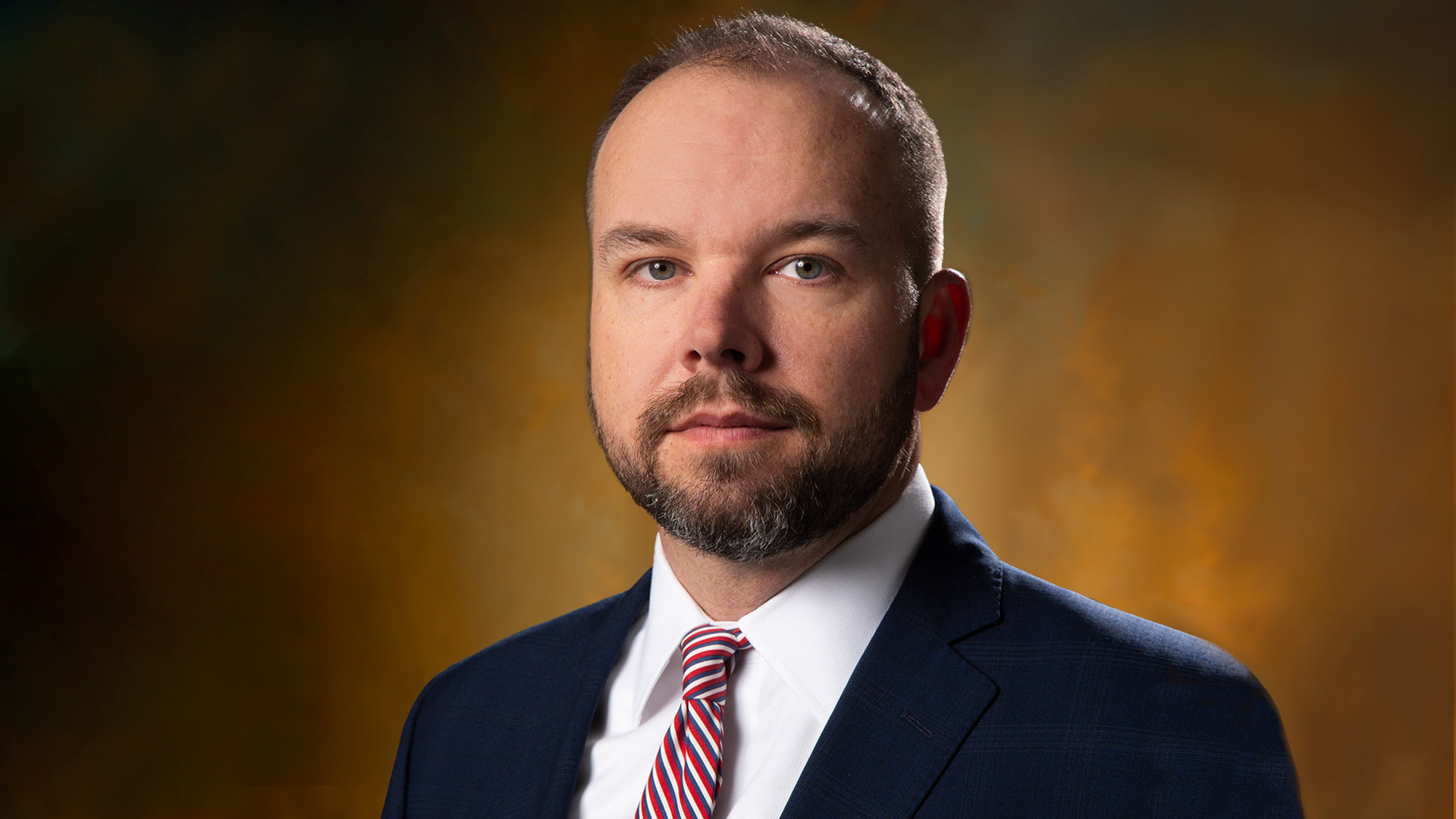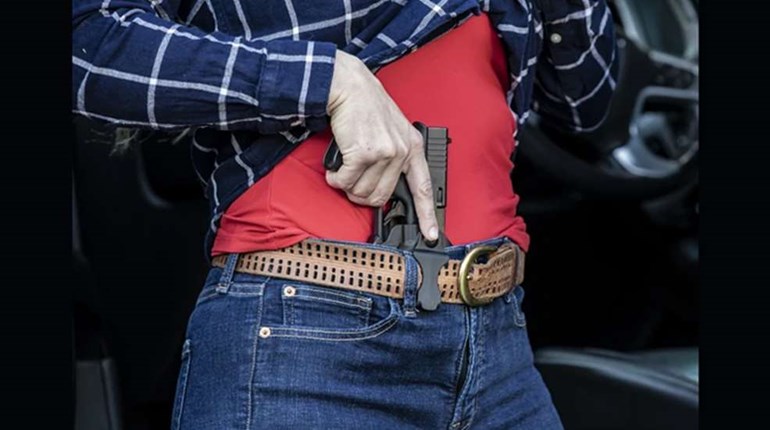
As policies from the Biden administration have opened the southern border of the United States of America to more illegal immigration, much of the national debate about immigration has necessarily focused on border security. But that important issue is for other publications and news services to report on and investigate. Here, if we can, I’d like to put that aside to focus on a big question related to our Second Amendment freedom that is being overlooked.
First, so you know where I am coming from, I’d like to tell you that I came to America, legally, at the age of four. My family wasted no time in fleeing Cuba once Fidel Castro declared himself a communist. Given our political refugee status, it is no secret that Cuban-Americans of my generation are among the strongest defenders of democracy, freedom of speech and religion, free-market capitalism and the fulfillment of the American dream. While we preserve our Latin identity, including our language, food and music, we absolutely have come to love and cherish our adopted country. While most refer to us as hyphenated Cuban-Americans, there is no doubt in our minds that we are Americans, first and foremost.
America has given so much to me. I’ve had a long and successful career as a media commentator, editor, business development adviser and producer and host of news and business programming for legacy and digital media outlets. I graduated from Harvard Business School and Georgetown University and spent 30 years in the world of international finance and wealth management with firms such as Goldman Sachs, Chase and American Express. I’ve contributed political and economic commentary in both English and Spanish to many publications and networks. Had my parents stayed in Cuba, my life would have been very different, as poverty, not progress, would have defined it.
My late brother, Jorge Mas Canosa, was the quintessential example of the American dream. Sadly, he died of cancer in 1997 at the age 58. But by then he had achieved what many can only dream of, including a beautiful family, international recognition as the leader of his exiled Cuban community and the founder of a highly successful, publicly traded company known as MasTec. Today, MasTec is a Fortune 500 company with a market value of $7.4 billion that employs over 22,000 people throughout the United States.
Plenty of similar success stories exist in other Hispanic communities. Whether from the U.S. territory of Puerto Rico, or from foreign countries like Mexico, Colombia, Peru, Venezuela, Cuba and others, millions of Hispanics have woven themselves into the tapestry of our society.
So, let’s ask the big question: As America’s Hispanic population grows, are they embracing the freedom they, in many cases, have decided to join with their own two feet? There is no simple answer to this critical question, but I would like to start by saying that in my experience in Florida, and as I travel and speak to many, I am finding Hispanics from all socioeconomic backgrounds increasingly demonstrating a greater appreciation for traditional American values, including respect for the U.S. Constitution and, in particular, the Second Amendment.

The Number of Hispanic Gun Owners in America is Growing
The National Shooting Sports Foundation, the trade group representing firearms manufacturers, commissioned a retailer survey to gauge the interest of Hispanics in America in exercising their lawful right to keep and bear arms. The survey determined that law-abiding Hispanic-Americans purchased firearms in 2020 at a 49% higher rate than they did in 2019. This uptick in interest seemed to be reflected in the 2020 presidential election, as the former president got 10% more of the Hispanic vote than he did in 2016.
To me, this trend was especially evident during the COVID pandemic. Several Hispanics I know, some of them lifelong liberals, expressed concern with the spread of urban violence in the United States. Knowing I was a gun owner, they reached out to me for assistance in purchasing their first firearm. I accompanied many such individuals to a local gun shop to help them with the selection and the paperwork process. It was an enlightening experience for them, as they had to present identification, to fill out a lengthy form, to submit to a background investigation and, in our local community, to wait for three days before they could take possession of their handgun. The reality of legally purchasing a firearm in America clashed with their liberal indoctrination that buying a gun was as easy as buying a toaster. A lot of learning occurred.
But fear of violence is not the only reason that Hispanic men and women are learning to appreciate the Second Amendment. Although we come from different countries—and came to America for different reasons—Hispanics share a strong affinity for the same traits that characterized America’s founders. The majority of Hispanics are people of faith, maintain strong family bonds and values, have a strong work ethic, are independent and yes, we abhor criminal behavior.
Until recently, the political consensus (and reality) was that Hispanics were more likely to vote for politicians who back more gun-control laws, but this has begun to change in recent years. In the 2020 election, for example, Donald Trump proved successful at making significant inroads in capturing Latino votes. In South Florida, Cuban-American voters came out strongly for Trump, but so also did 30% of central Florida’s Puerto Rican population. In Texas, Trump did especially well with the Tejano vote in the Rio Grande Valley of Texas. He also made significant inroads in Colorado, Nevada and Arizona. Even in places like Milwaukee, Wis., and Patterson, N.J., Trump gained significantly more Hispanic votes than he did in 2016.
This trend continued in the 2022 midterm elections. According to a CNN poll of 1,840 respondents, some 33% of Latino voters are independents; this large block of voters plays an important role in deciding many local elections. Regardless of political party, 42% of Latinos identify themselves as politically moderate and 28% consider themselves to be “conservative.”
I believe that Hispanics are increasingly voting for freedom because they are fed up with the increasing crime, inflation, lingering effects of COVID lockdowns and unfettered immigration that is affecting their livelihoods and communities. Many Hispanics are small-business entrepreneurs and feel the impact of all these problems on their businesses and in their local communities.
Therefore, it should surprise no one that a recent National Shooting Sports Foundation (NSSF) survey indicated that there has been a significant increase in Hispanics purchasing firearms—many of them for the first time. Hispanics are concerned about the deteriorating economic environment and about decreased public safety.
There is a Big Opportunity Here
For those of us who believe in the importance of the U.S. Bill of Rights, and especially the Second Amendment, the current environment presents an opportunity to engage and educate not only the growing Hispanic population, but also other minority groups.
It is important to realize that for many recent immigrants, the whole concept of individual rights, including the right to keep and bear arms, is something entirely new. Many immigrants are fleeing countries where individuals have no rights. Authoritarian regimes certainly do not prioritize the rights of a human being over that of the state. And this unfamiliarity is not limited to those coming from authoritarian countries. Plenty of countries in Latin America, Asia, Africa and Europe have democratic governments, but they often restrict free speech and the private ownership of firearms is either unheard of or tightly controlled.
Our neighbor just to the south, Mexico, has an executive, legislative and judicial branch like ours, and citizens can supposedly own firearms there, but realistically, it is very difficult to legally acquire a firearm in Mexico. There is only one gun shop in the entire country, located in Mexico City and run by the Mexican military. Nevertheless, as is obvious from daily news reports, the country’s narco-traffickers are as well-armed, if not better armed, than most Mexican police and military units. In addition, I can tell you—from personal experience—that Mexico’s political and business elites possess all manner of firearms … and have no difficulty acquiring them. Money can solve many problems.
The Mexican model is similar throughout most of Latin America. The rich and powerful, whether legitimate business owners, politicos, or corrupt narco-traffickers, have access to guns, bodyguards and in some cases, private armies. The state has the same. But the ordinary working-class Jose or Maria has never seen a firearm other than in the movies or on television, in the hands of the police and the military, or carried by roving guardaespaldas protecting business titans, powerful politicians or drug dealers.
Even Puerto Ricans have had poor experience with this freedom. Puerto Ricans are an important segment of the U.S. Hispanic population. More Puerto Ricans now live in the continental U.S. than on the island. Puerto Ricans, in addition to being U.S. nationals, are also citizens of the Commonwealth of Puerto Rico. Until 2020, the ability of a Puerto Rican on the island to own a firearm was highly restricted. Rampant crime, poor law enforcement and a failing economy led to an easing of gun laws so that Puerto Ricans could protect themselves and their property; as a result, only recently have Puerto Ricans begun to appreciate the right to own firearms—though doing so still entails undergoing an expensive and laborious permitting process.

The Second Amendment is Every Americans’ Right
The Second Amendment is colorblind. It is a right for all American citizens. This has always been the clear position of the National Rifle Association. Unfortunately, some gun-control activists with bylines in mainstream-media publications behave as if gun ownership in America were comprised of only older, white men. In 2018, for example, Scientific American actually asked, “Why Are White Men Stockpiling Guns?” Former President Barack Obama (D) once accused certain voters of “clinging to their guns … .” Indeed, David Chipman, a gun-control employee and President Joe Biden’s (D) first nominee to head the Bureau of Alcohol, Tobacco, Firearms and Explosives (A T F), once mocked the country’s millions of new gun owners as doomsday preppers who “hide their guns behind the cans of tuna and beef jerky.”
The truth is, gun ownership in American has always been diverse. In 2020, for example, black Americans bought firearms by a 58% greater rate than 2019. Gun purchases by Asians rose by 42%. Women accounted for roughly 40% of new gun sales.
Lara Smith, spokeswoman for the national group Liberal Gun Club, spoke at the Shooting, Hunting and Outdoor Trade (S H O T) Show 2023 and said, “Unicorns do exist, and liberals can be gun owners, too.”
To summarize, if Hispanics have an unfavorable view of firearms, it is likely because they have heard only negative things about them; they have been prohibited from owning them; and they associate guns with oppressive police forces and criminal drug traffickers in the neighborhoods and countries they grew up in.
That sounds negative, and it is, but this also presents an opportunity for America’s lawful gun owners, organizations and the firearms industry to educate this large and growing segment of the U.S. population. That education needs to take place at several levels.
First, all Americans, and those who aspire to become American citizens, need to understand how America came into being. They need to understand the origins of the American Revolution and how an oppressive government led to discontent and a desire for independence. The importance of America’s Founding Fathers in recognizing that free men and women have inalienable rights that come from God and are not granted by any state or sovereign is critical. Reading The Federalist Papers, the Declaration of Independence, and the U.S. Constitution—including its first 10 amendments enshrined in the U.S. Bill of Rights—help all of us become informed citizens. In addition, everyone should understand the critical role that firearms have played in the history of this country, including America’s westward expansion and the Reconstruction era.
Next, we need to introduce more people to our sporting traditions. We need to teach existing or future citizens about the recreational uses of firearms. This is critical to dispelling the myths that many have concerning firearms, as well as the perception that guns serve no useful purpose outside of police and military circles. All gun owners know the smiles that even a simple plinking session with a .22 brings to any novice shooter. As a community, we need to make sure that those with a neutral or negative view of guns understand that they have a positive—and enjoyable—aspect.
 Gabby Franco Says It This Way
Gabby Franco Says It This Way
As a shooting competitor, Gabby Franco represented Venezuela in the Olympics in 2000. She fled the country in 2002 after it became clear that Venezuela wasn’t just on a horrifying path economically, but also was predictably going after citizens’ freedom—particularly their ability to own and carry firearms for self-defense.
“When I came to America, I did not speak English, and I was watching left-leaning Spanish television networks that were giving me the same worldview I was often exposed to in Venezuela,” said Franco. “But, given what I went through in Venezuela, I wasn’t buying it. Still, it took a while for me to learn all about the Second Amendment and this awesome freedom. So now, I tell all those of us who speak Spanish that they must help educate those whose first language is Spanish. I also tell them: Don’t try to make this country into where you came from! You came here for opportunity, to pursue your dreams, so you should always remember why you came to the U. S. You ran from socialist government, from anti-gun, anti-liberty regimes. You came here for freedom, so embrace it, learn about and tell everyone you speak with what this liberty is and why it is so important.”
We also need to help people understand how laws are made (and enforced) in America. Most Americans have little understanding of how major gun bills were passed and how many such laws continue to evolve today. Existing and potential voters must understand that only Congress can make or change laws and that the executive branch and its agencies cannot exceed their authority. The important role that courts play in interpreting the U.S. Constitution and our laws is another critically important point. Recent U.S. Supreme Court decisions, including Heller, McDonald and Bruen, should be a part of this instruction.
Now comes the critical discussion about personal protection. As firearms are essential for self-protection, citizens need to understand the circumstances under which the use of deadly force is not prohibited in their jurisdiction. Experienced gun owners know that teaching a person to handle and safely shoot a firearm is relatively easy. Unfortunately, we often fail to stress the need for legal awareness—and training—if they plan to carry a firearm for defensive purposes.
Some Organizations are Teaching
Some groups are already doing this outreach to America’s Hispanic population. I work with such organizations, including The Outdoor Wire and Americano Media, that are specifically engaging Hispanics. The Outdoor Wire, led by industry veteran Jim Shepherd, produces a Spanish-language edition, Outdoor Wire Español, every Thursday that summarizes important news from America’s firearms industry, pro-Second American organizations and more. I also helped the NRA translate a document that details the many accomplishments that NRA-ILA has fought for and won to bring more freedom to Americans.
Americano Media is a rapidly growing conservative media organization that produces high-quality Spanish-language content, including opinions that support the Second Amendment. Americano’s founder, Ivan Garcia-Hidalgo, is a successful business entrepreneur and gun owner who is firmly committed to dispelling the one-sided liberal bias that permeates reporting from networks like Univision and Telemundo.
Truth be told, every existing or future citizen in America, regardless of skin color or ethnic background, should have an understanding and appreciation for the Second Amendment and all our individual freedoms. It should not be limited only to Hispanics or other minority groups; however, this education is crucial when you are dealing with large segments of the population who have little or no understanding of the important role that firearms have played in American history and their rightful place in modern society.
We are at a defining moment in our country’s history. The future of the Second Amendment may depend on how well we inform and educate a new generation of voters and potential gun owners. Sooner or later, those individuals will assimilate into our society, just as generations of immigrants and minorities have done before them.
Let us make sure they understand and appreciate the important role that firearms have played in protecting our families, our country and our liberties since American patriots first rebelled against their British oppressors on the fields of Lexington and Concord in 1775.
God bless the USA.
Raul Mas, an NRA Patron member, is a former banker and investment advisor who now lends his talents to Americano Media and The Outdoor Wire. You can connect with and follow him easily on LinkedIn.


































